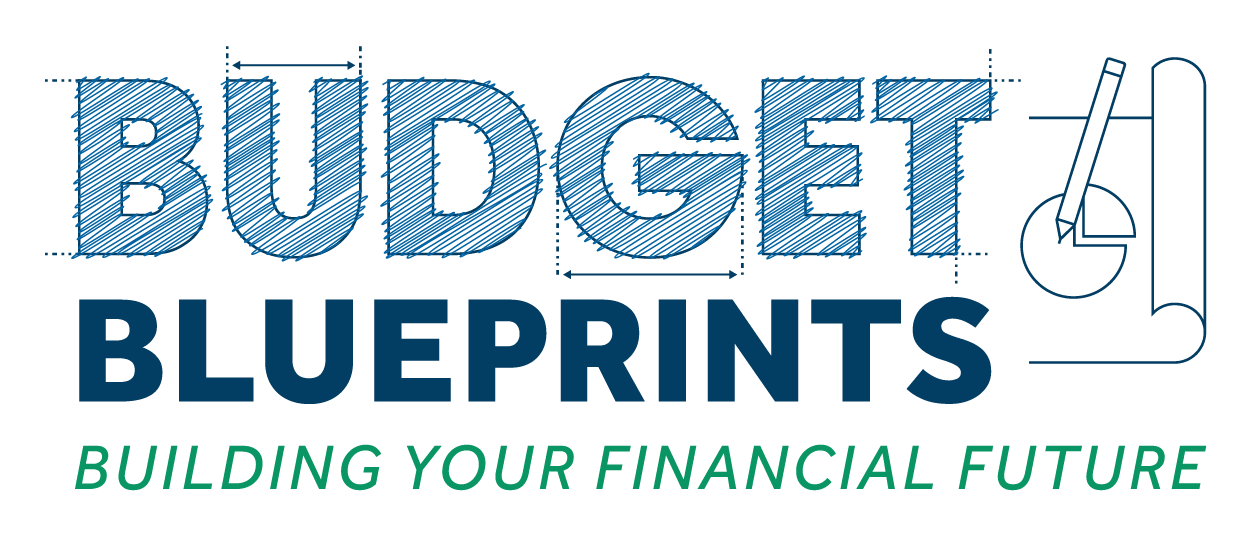In this post: Budgeting can be a repetitive, mundane task that seems to only focus on paying bills and address spending on other obligations. It doesn’t have to be this way! Learn how to put YOU in your budget with values-based budgeting.
A More Fulfilling Budgeting Method
Raise your hand if you love spending money on bills and bills alone. *Crickets.* No one, right? No one likes to solely go to work and spend the money earned on bills alone. We want to spend our paychecks on things we enjoy.
If you read my previous post about financial wellness, then you will remember that your personal wellness is like a pie, with different slices representing different areas of your life. Your financial wellness is only one piece of this pie. Your wellness also includes your social, physical, mental, spiritual, relational wellness, and more. You are not just a person who pays bills. You are a person who enjoys spending money on others, experiences, activities, splurging, and good, good food!
You are not just a person who pays bills.
So, how do we create a budget that aligns with the items most important to us? How do we view our budgets more holistically? We budget based on our values.
What is Values-Based Budgeting?
Values-based budgeting is a concept that puts you and your values at the forefront of your budgeting experience. It isn’t a technical act of physical budgeting; it is mindfulness that is practiced as you set up your budget in your preferred budget method, whether that looks like using an app or piece of paper.
Prior to budgeting, you will identify what is most important to you and align your budget categories in a way that reflects these important items. When you start budgeting, you begin with your bills but then take time to craft your discretionary items into a spending plan that reflects what’s important to you.
Personal values are different for everyone. Fancy coffee gets a bad rap for being expensive — and don’t get me wrong: it is more frugal to brew coffee at home — but if meeting your friend at a coffee shop nurtures the “social” piece of your wellness pie, then budget it in! Likewise, you could exercise at home or run around the block for free, but if physical wellness is a huge value to you, then YES, budget that $120 monthly gym membership or personal trainer fees. The same principle applies to other pieces of your pie. Like to host parties? Budget extra in your entertainment budget. Love to bless others? Create a category in your budget for random acts of kindness. Concerned with the quality of food for your kids? Budget more toward your grocery category to focus on organic products.
Personal finance is personal, and that personality is only going to come through if you incorporate YOU as you decide where to spend your money each month.
The Importance of Values-Based Budgeting
There are many reasons why values-based budgeting is impactful, but as noted above, one of the most important ones is that it makes your budget personal. There aren’t very many people (besides me 😉) who just love budgeting. Most individuals see budgeting as a diet for their wallet — a monthly task with a negative connotation. Values-based budgeting shifts your mindset to understand your money can be used as a tool to reach your goals and add value to your life. Once you take care of your basic needs, the rest of your money needs a job. Give those dollars jobs that will nurture your lifestyle and drive you closer to your goals.
I help individuals all the time to shift their money management mindset from a place of restriction to a place of freedom and allowance by simply realigning their budget categories based on what’s important to them. I remember one time I met with a couple and they were convinced I was going to completely eliminate everything fun from their budget in order to pay off debt. To their surprise, I suggested the opposite: to keep the fun things in the budget but simply set limits to ensure the overarching goal of paying off debt is met. You wouldn’t believe the relief that washed over their faces. Budgeting can serve both your holistic wellness and your financial goals.

How to Determine Your Values
To shape our budgets holistically, we need to first take time to identify what’s important. If you don’t immediately know what your values are or which of them are most important to you, try out this great exercise by MindTools to determine your values and view a list of the most common values. Or for a printable values list, check out this one from our shop!. Determining your values will require time reflecting on what’s important to you. Grab a journal and a cozy spot, and start reflecting on the things, causes, people, and experiences that you value most.
Common values are:
- Relationships/family
- Fulfillment
- Education
- Giving Back
- And more!
We spend money on what we value. Once you have examined your values, it’s time to open your bank statements. Review your transactions for the last few months. Does your spending reflect what’s important to you?
When you take inventory of your past spending, ask yourself:
- When am I spending money on things that make me happy or are tied to memories?
- Am I satisfied with the money spent on this item or do I wish I spent (or saved) it elsewhere?
- Does my spending reflect progress toward my goals?
- What spending areas can I change to better align them with my values and goals?
Setting Up Your Values-Based Budget
Pencils down! It’s time to move from the journaling portion to the hands-on budgeting portion of your values-based budget. The next step is to set up your budget and use your values as the driver when allocating your discretionary spending. Use our Budgeting Your Values worksheet to help identify and organize your values-based budget!
- Start with your budget method of choice. This could be a worksheet like the 50/30/20 budget, a simple budget, an app, a calendar/planner, or a spreadsheet.
- Record your income and expenses as normal. This part of budgeting doesn’t change with values-based budgeting. List your income followed by the fixed and variable needs in your budget. These are items like rent or mortgage, utilities, groceries, transportation, and so on. Think of this section as the items you NEED to spend money on to live. No bells and whistles here.
- Identify discretionary spending based on values. Now, using the leftover income after you pay for your basic needs, determine your discretionary wants categories based on values. This is where you add line items into the budget that enhance your life and drive you toward your goals. This may look like the following:
| Value | Budget Category | Amount |
| Relationships | Weekly Coffee with Friends | $20/week |
| Giving Back | Charity/Kindness | $100/month |
| Healthy Living | Groceries | $600/month (instead of $400) to buy organic |
| Travel/Adventure | Travel Savings Fund | $200/month |
This is just an example of how you could set up your discretionary spending. Most likely, you already have your values hidden in your categories. It’s now just time to evaluate the categories you have, then either create new categories or increase/decrease your categories to allow your values to be the focus of your spending.
- Allocate funds toward savings. As always, don’t forget to save each month. Your savings goals are also closely linked to values, whether you are aware of it or not! Either for a rainy day or a big goal, you’d be surprised to see how your savings account is your values on display. For example, you may have a value of “security” so that your emergency fund savings are aligned with that value. Or you may have a value of “adventure” so your travel fund is serving that area of your life.
How values-based budgeting impacts your spending
Now that we have crafted a budget that has YOU written all over it, we must protect it. As I said earlier to my clients, we can budget for what we want, but we have to put limits on it. This is so that this spending does not throw our financial goals off track or potentially cause us to find ourselves swimming in credit card debt. Here, mindfulness jumps from our budget sheets to our wallets. It is important to practice mindful spending when operating on a values-based budget. This just means that with every purchase you make, you will have your wellness pie in the front of your mind. You’ll keep your eye on the big picture of your goals and values, then spend your money accordingly.
Prior to making a purchase, ask yourself some of these questions to ensure that you are spending with values in mind:
- Is this purchase moving me closer to my goals?
- Is this purchase amount within my allotted budget?
- What will happen if I don’t buy this item?
- Is there a cheaper or higher-quality alternative I’d like instead?
- Is there another place I could purchase this item so that my values are met? (For example, consider purchasing from a small business vs. a large chain to support the local economy.)
Final Thoughts on Values-Based Budgeting
I believe this approach to budgeting is so, so important. Budgeting that is devoid of any personal drivers is not sustainable in the long run. Your budget is your roadmap to your financial goals and enjoying life. It gives you permission to spend on the things you enjoy when you have your values front and center. Determine your values and incorporate it into your budget for a money management system that is 100% you-focused. If you need help determining your values, realigning your categories, or discussing your spending habits, I would love to work with you through financial counseling!















What do you think?